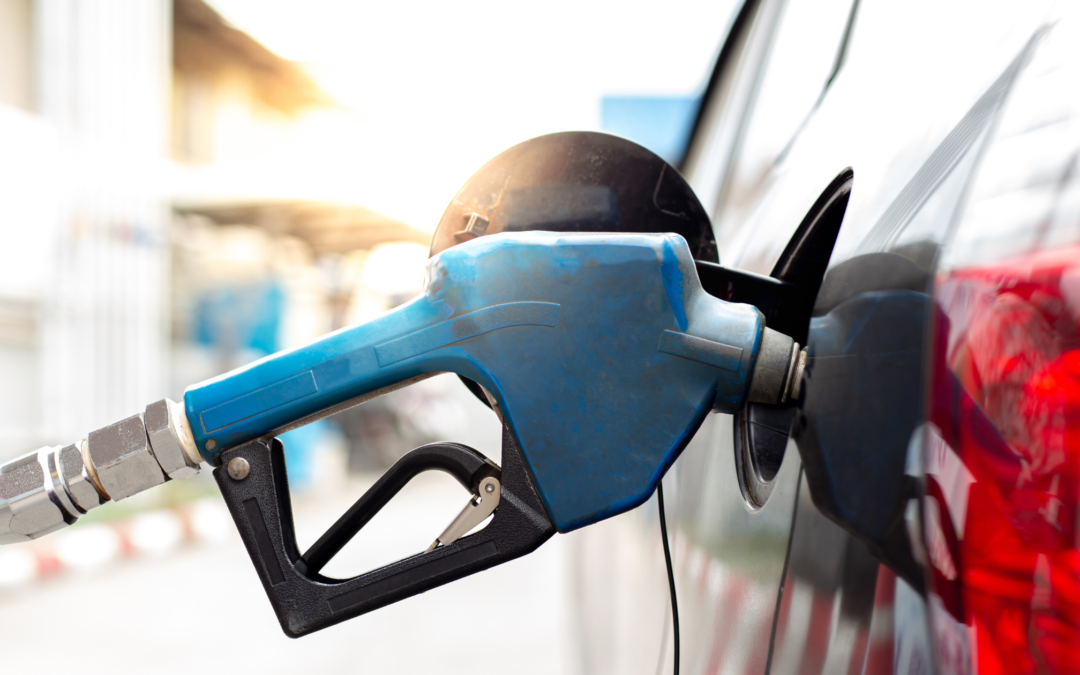Fuel prices in Nigeria skyrocketed, rising from ₦668.30 per liter in January to ₦1,025 in November—a staggering increase of over 50%. For the average car owner, this means higher transportation costs, tighter budgets, and the need to rethink daily driving habits. The good news? It is possible to cut down your fuel consumption with the following hacks. In this guide, we’ll share 10 ways to reduce car fuel consumption, improve fuel efficiency, and keep your wallet intact.
What Affects Your Car’s Fuel Consumption?
Fuel consumption doesn’t just depend on how much you drive. Various factors influence how efficiently your vehicle uses fuel.
1. Vehicle Type
The type of car you own plays a major role. Larger cars, like SUVs and trucks, generally consume more fuel than smaller, compact vehicles. Additionally, cars with older or less efficient engines tend to guzzle fuel.
2. Driving Conditions
City driving with frequent stops, traffic jams, and idling uses more fuel than highway driving at a steady speed. Navigating Lagos traffic during rush hour? Expect higher fuel bills compared to open-road drives.
3. Maintenance Levels
Neglecting regular car maintenance leads to inefficient fuel use. A dirty air filter, old oil, or underperforming spark plugs all reduce your car’s performance and increase fuel consumption.
By addressing these factors, you’re already one step closer to saving on fuel. Now, let’s explore 10 strategies to reduce car fuel consumption.
1. Drive Smoothly and Avoid Aggressive Driving
Driving aggressively—accelerating too quickly, braking abruptly, or weaving through traffic—not only puts wear on your car but also wastes fuel. Cars operate most efficiently when driven at consistent speeds, ideally between 50–65 km/h. Aggressive driving can increase fuel consumption by as much as 30%.
How to Drive Efficiently
- Accelerate gradually instead of flooring the gas pedal.
- Use cruise control on highways to maintain a steady speed.
- Anticipate traffic patterns to minimise unnecessary braking.
Driving smoothly not only saves fuel but also reduces wear and tear on your vehicle, lowering repair costs in the long run.
2. Keep Your Tires Properly Inflated
Under-inflated tires create more rolling resistance, forcing your engine to work harder and use more fuel. On the other hand, properly inflated tires reduce drag and improve mileage. Maintaining the correct tire pressure can improve fuel efficiency by up to 3%.
Tips for Maintaining Tire Pressure
- Check your tire pressure monthly using a portable tire gauge.
- Refer to your car’s manual for the recommended PSI (pounds per square inch).
- Invest in a portable air compressor for quick fixes at home.
Properly inflated tires also last longer, saving you money on replacements.
3. Limit Excess Weight in Your Vehicle
Did you know that every additional 100 pounds in your car can reduce fuel economy by 1–2%? Carrying unnecessary items in your trunk or keeping roof racks installed when not in use increases drag and makes your engine work harder.
Steps to Reduce Vehicle Weight
- Remove roof racks, bike carriers, or unused cargo boxes.
- Empty your trunk of heavy tools or equipment you don’t need daily.
- Avoid carrying excess passengers when possible.
Lighter vehicles require less fuel to move, so decluttering your car is a quick win for better mileage.
4. Avoid Idling for Too Long
Idling is one of the most wasteful habits when it comes to fuel consumption. Whether you’re stuck in Lagos traffic or waiting for someone, keeping your engine running unnecessarily burns fuel without covering any distance.
Practical Advice
- Turn off your engine if you’re idling for more than a minute.
- Consider modern cars with start-stop systems that automatically shut off the engine during stops.
This simple habit can lead to noticeable savings over time.
5. Maintain Your Car Regularly
A well-maintained car is a fuel-efficient car. Regular servicing ensures your engine runs smoothly and uses fuel efficiently. Neglecting maintenance, on the other hand, leads to higher fuel consumption and costly repairs down the line.
Key Maintenance Tasks
- Oil Changes: Replace engine oil as recommended to reduce friction.
- Air Filters: Clean or replace dirty air filters to allow proper airflow.
- Spark Plugs: Replace worn spark plugs to ensure smooth combustion.
Regular servicing can improve your car’s mileage by up to 15%. Platforms like Everything Motors provide tools to compare vehicle repair prices and connect you with trusted mechanics.
6. Plan Your Routes Strategically
Planning your trips helps minimise unnecessary mileage and avoid fuel-wasting detours. Driving during off-peak hours can also reduce the time spent idling in traffic.
Use Route-Planning Tools
- Google Maps or Waze: Identify the shortest, fastest routes.
- Traffic Alerts: Avoid congested areas during rush hours.
- Combine multiple errands into a single trip to cut down on mileage.
Efficient trip planning not only saves fuel but also reduces stress during your drives.
7. Use the Air Conditioner Wisely
Using your air conditioner (A/C) increases your car’s fuel consumption by up to 20%, especially in city driving. However, rolling down the windows at high speeds can create drag, which also affects fuel efficiency.
How to Balance Comfort and Efficiency
- Use the A/C sparingly at low speeds.
- Opt for natural ventilation when driving in cooler weather.
- At highway speeds, A/C is more fuel-efficient than open windows.
Learning when and how to use your A/C effectively can save both fuel and money.
8. Choose the Right Fuel for Your Car
Using the correct fuel grade recommended by your car’s manufacturer ensures optimal performance and efficiency. In Nigeria, sticking to trusted fuel stations reduces the risk of using adulterated fuel, which can damage your engine.
Tips for Choosing Fuel
- Check your vehicle manual for the recommended fuel grade.
- Avoid filling up at unregulated stations.
- Opt for stations like NNPC or TotalEnergies for high-quality fuel.
Using the right fuel not only saves money but also extends your engine’s lifespan.
9. Drive at Optimal Speeds
Driving at excessively high speeds increases drag and burns more fuel. For most vehicles, the optimal speed for fuel efficiency is between 50–65 km/h.
Fuel-Saving Strategies
- Use cruise control on highways to maintain consistent speeds.
- Avoid frequent acceleration and deceleration.
Keeping your car in its fuel-efficient “sweet spot” can dramatically improve mileage.
10. Convert Your Car to CNG for Greater Savings
Compressed Natural Gas (CNG) is a cost-effective and eco-friendly alternative to traditional fuel. At just ₦200 per liter, switching to CNG can significantly reduce your fuel expenses while lowering your carbon footprint. Many modern vehicles can be converted to run on CNG, offering drivers a more sustainable and affordable option.
Why Consider CNG?
- Cost Savings: At ₦200 per liter, CNG is far cheaper than petrol or diesel.
- Eco-Friendly: CNG emits fewer greenhouse gases compared to traditional fuels.
- Efficient Combustion: Engines running on CNG are known to last longer due to cleaner burning.
To learn everything you need to know about CNG cars, read our detailed guide here. Transitioning to CNG is a smart, sustainable move for fuel-conscious drivers in Nigeria.
How Everything Motors Can Help You Save on Fuel Costs
Owning and maintaining a car in Nigeria comes with its challenges, from dealing with mechanics to finding affordable parts and renewing licences. At Everything Motors, we aim to make car ownership simpler and more efficient, helping you focus on what matters—staying on the road.
Here’s how we can support you:
- Vehicle Parts Price Checker: Quickly compare prices to find the best deals on parts and repairs.
- Mechanic Outsourcing: Connect with trusted and experienced mechanics for reliable repairs.
- Licence Renewals: Simplify your vehicle registration and licence renewal process.
- Driver Outsourcing: Need a skilled, vetted driver? We’ve got you covered.
We’re here to make car ownership stress-free and convenient. Fill out our contact form and let us know how we can assist you. Join the Everything Motors community today and enjoy access to tools, resources, and services designed to save you time, money, and effort.
Conclusion
Reducing car fuel consumption is about adopting smarter driving habits and staying proactive with maintenance. By implementing these 10 tips, you can save money, reduce emissions, and extend your vehicle’s lifespan. Start your journey toward fuel efficiency today, and explore Everything Motors for tools and services that make car ownership hassle-free.


